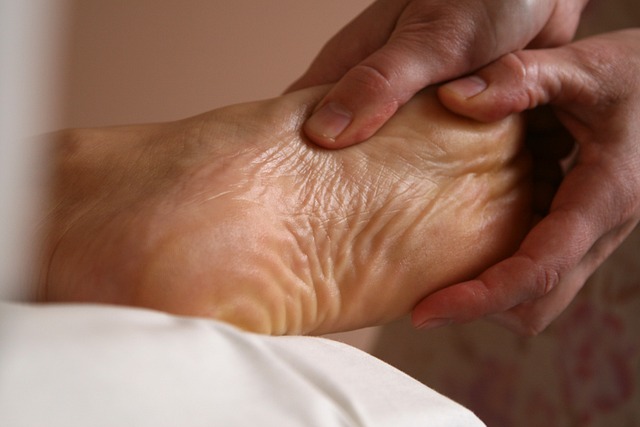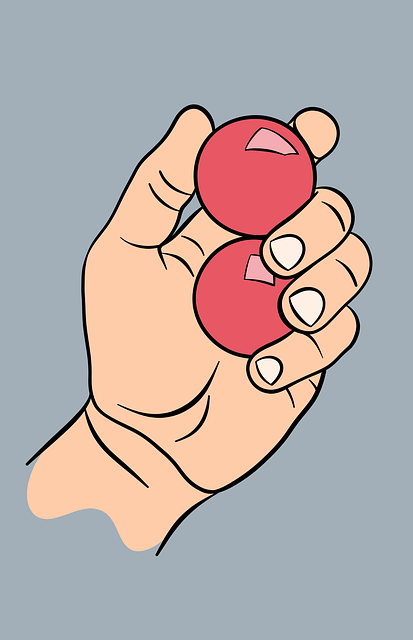Therapeutic stress coping mechanisms leverage evidence-based strategies like cognitive-behavioral therapy, mindfulness, physical activity, and creative outlets to empower individuals in managing stress. Personalized approaches, including self-reflection, tailored techniques, and cognitive restructuring, foster resilience and emotional balance. Mindfulness practices, exercise, social support, and creative endeavors offer immediate and lasting stress relief, enhancing overall well-being through effective stress relief therapy.
“Unravel the power of therapeutic stress coping mechanisms and discover a holistic approach to well-being. This comprehensive guide explores various strategies to manage stress effectively, offering a tailored roadmap for personal growth. From cognitive techniques to creative outlets, each section delves into powerful tools to reduce stress and enhance mental resilience. Learn how mindfulness practices, physical activities, and social support networks can be seamlessly integrated into daily life, providing lasting stress relief therapy.”
Understanding Therapeutic Stress Coping Mechanisms

Therapeutic stress coping mechanisms are essential tools in managing and alleviating stress, a ubiquitous part of modern life. These mechanisms go beyond simple relaxation techniques; they are evidence-based strategies employed by professionals to help individuals navigate and overcome stressful situations. Understanding these coping mechanisms is crucial for anyone seeking effective stress relief therapy.
Through therapeutic interventions, individuals learn to recognize and challenge their stress triggers, develop healthier response behaviors, and cultivate a deeper sense of resilience. This process involves various techniques such as cognitive-behavioral therapy, mindfulness practices, and physical activity, all designed to empower people with long-lasting coping skills. By integrating these strategies into daily routines, folks can effectively manage stress levels, enhancing overall well-being and quality of life.
Identifying Individual Stress Relief Strategies

Every individual copes with stress differently, making it essential to identify personalized strategies for effective stress relief. Therapeutic stress coping mechanisms involve exploring and understanding what works best for each person. This process often begins with self-reflection, where individuals assess their triggers and the impact of stress on their lives. By recognizing patterns, one can start to unravel their unique relationship with stress.
Various techniques can be employed as part of stress relief therapy, such as mindfulness practices, meditation, deep breathing exercises, or engaging in physical activities like yoga or walking. Some people find solace in creative outlets like art, music, or writing, while others prefer spending time in nature or connecting with supportive social networks. Identifying these personal preferences and tailoring them to one’s needs is key to managing stress effectively.
Cognitive Techniques for Stress Management

Cognitive techniques form a powerful toolset within stress relief therapy, offering individuals effective ways to manage and reduce stress levels. These methods focus on challenging and changing unhelpful thought patterns and beliefs that contribute to feelings of stress and anxiety. By identifying negative cognitive distortions, such as catastrophizing or all-or-nothing thinking, individuals can learn to reframe their thoughts in a more balanced and realistic manner. This process empowers them to respond to stressful situations with increased clarity and resilience.
One widely used technique is cognitive restructuring, where people are encouraged to question and replace negative thoughts with positive, evidence-based alternatives. For instance, instead of thinking “I always fail at everything,” an individual might challenge this belief by recalling past successes or considering the likelihood of improvement through effort and learning. This shift in perspective can significantly alleviate stress and foster a more positive mindset, ultimately enhancing overall well-being.
Mindfulness Practices to Reduce Stress

Mindfulness practices have emerged as powerful tools in therapeutic stress coping mechanisms, offering a holistic approach to stress relief therapy. These techniques encourage individuals to focus on the present moment, cultivating awareness of their thoughts and sensations without judgment. By embracing mindfulness, people can learn to detach from stressful triggers and gain a deeper understanding of their emotional responses.
One effective method is mindful breathing exercises, which involve slow, deliberate inhalation and exhalation, allowing the mind to calm and the body to relax. Additionally, mindfulness meditation helps individuals observe their thoughts as they arise, without getting caught up in them, thereby reducing the impact of stressful situations. These practices have been shown to lower cortisol levels—a hormone associated with stress—and promote a sense of mental clarity and emotional equilibrium.
Physical Activities and Their Benefits for Stress Alleviation

Physical activities have been proven to be a powerful tool in managing and reducing stress, offering an effective form of stress relief therapy. Regular exercise stimulates the release of endorphins, often referred to as ‘feel-good’ hormones, which act as natural painkillers and promote a sense of well-being. This biological response helps reduce tension and anxiety, providing an immediate and long-lasting effect on mental health.
Engaging in physical activities allows individuals to temporarily escape the demands and pressures of daily life, offering a much-needed mental break. Moreover, these activities encourage a sense of accomplishment and self-efficacy, boosting one’s confidence and overall resilience in managing stress. Whether it’s a brisk walk, yoga, or an intense workout, incorporating physical exercise into one’s routine can significantly enhance coping mechanisms and overall stress management.
Social Support Networks in Stress Relief Therapy

Social support networks play a pivotal role in stress relief therapy, serving as a cornerstone for individuals seeking to manage and overcome stressful situations. These networks, comprised of friends, family, and even professional support groups, offer a safe haven where individuals can share their experiences, gain perspective, and receive encouragement during challenging times. The power of social connection lies in its ability to provide emotional validation, practical assistance, and a sense of belonging—all essential components for effective stress relief therapy.
In the context of stress relief therapy, leveraging these support networks enables individuals to build resilience against stressful events, fostering coping mechanisms that extend far beyond the therapeutic setting. Whether through shared experiences, knowledge exchange, or simply having someone to listen, social support acts as a buffer against the negative impacts of chronic stress, ultimately enhancing overall well-being and mental health.
Creative Outlets as Powerful Stress Coping Tools

Creative outlets can serve as powerful tools in therapeutic stress coping mechanisms. Engaging in activities like painting, writing, dancing, or playing music allows individuals to express their emotions and thoughts in unique and constructive ways. These artistic endeavors provide an outlet for release, helping to alleviate the intensity of stressful feelings. By channeling energy into a creative process, individuals can gain a sense of control and perspective, which is crucial for effective stress relief therapy.
Furthermore, creative activities stimulate the mind, diverting attention from stressors and fostering a state of mindfulness. The act of creating something beautiful or meaningful can be deeply therapeutic, offering a form of meditation that promotes mental clarity and emotional balance. Incorporating creative outlets into daily routines can serve as proactive measures against stress, enhancing overall well-being and resilience.
Integrating Therapeutic Stress Coping Mechanisms into Daily Life

Integrating therapeutic stress coping mechanisms into daily life is a powerful way to enhance overall well-being and manage stress effectively. These strategies, often derived from various therapeutic practices, offer individuals a sense of control and resilience in the face of stressful situations. By incorporating techniques such as mindfulness meditation, deep breathing exercises, or cognitive reframing, one can transform their reaction to stressors, leading to improved mental clarity and emotional balance.
Stress relief therapy encourages individuals to be present and mindful, allowing them to detach from anxious thoughts and negative self-talk. Simple practices like regular journaling, engaging in hobbies, or spending time in nature can serve as grounding techniques, helping to centre oneself during moments of heightened stress. Over time, these coping mechanisms become integral parts of one’s routine, fostering a sense of calm and promoting a healthier relationship with stress.
